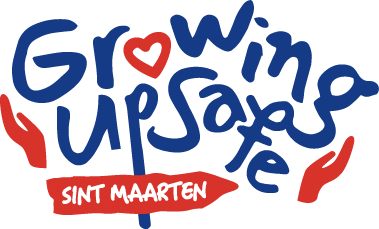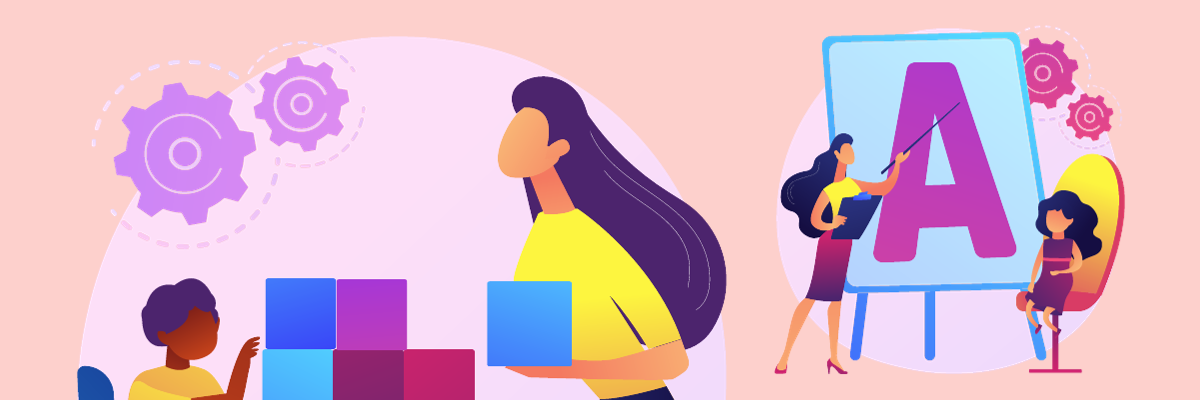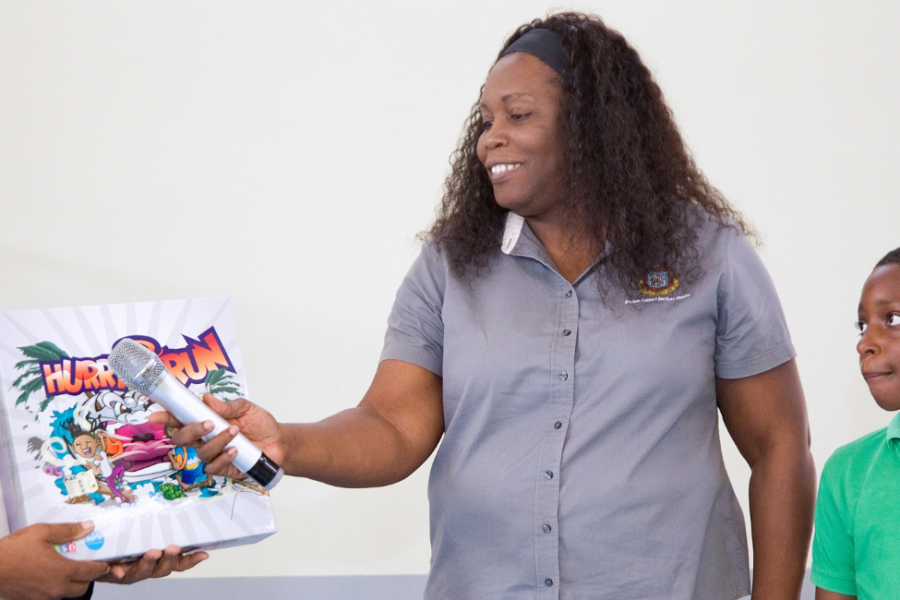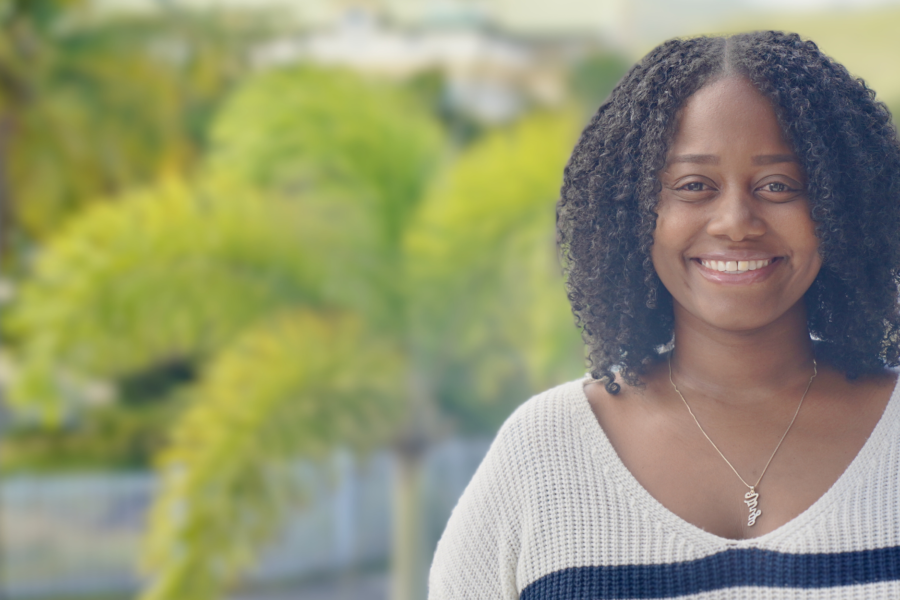“My challenge to Caribbean people is to think about the following: How do you perceive our children’s problems? What would work that fits our island’s reality, culture, and values?”
– Xiomara Balentina, Psychologist, Student Support Services Division (SSSD)
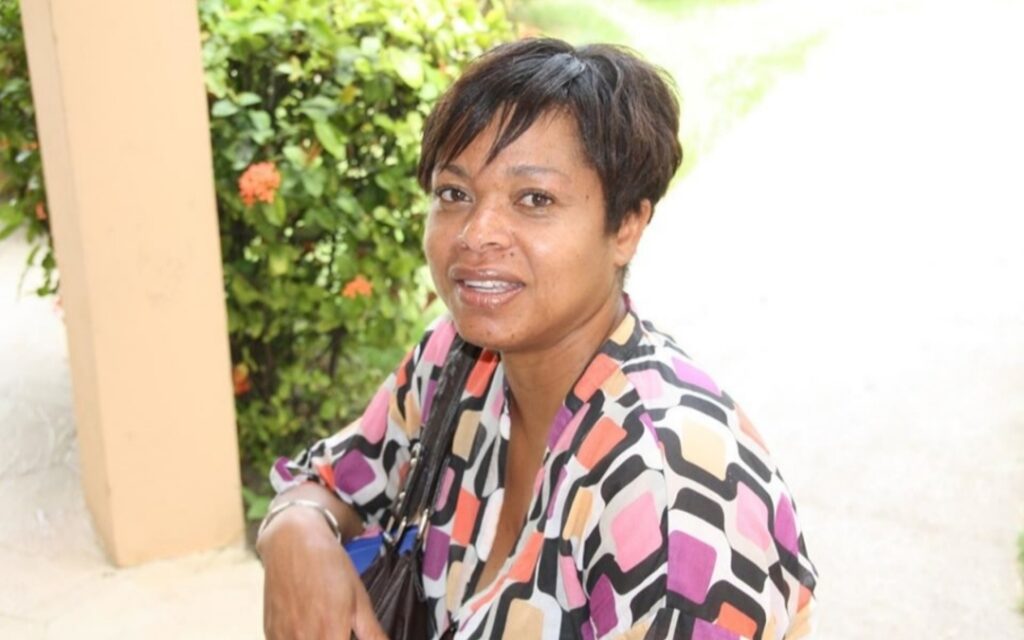
If a child struggles in maths, reading, behaviour, or any other area, the next step for parents or teachers is to figure out how to help that student. Their search for answers begins.
The most frequently reported academic challenges are Reading, Maths, and Language. Depressed, anxious, disruptive, emotionally distant, unfocussed, etc – are terms often used to describe behavioural and social-emotional problems experienced in schools. However, Xiomara Balentina warns professionals and others in the community against labelling children too quickly. “I avoid labels when assessing children with possible behaviour, social-emotional or learning difficulties.”
Labels prevent us from looking deeper into why the child might struggle academically or is being disruptive. Their home situation, school, and community environment can play a significant role in their challenges.”
Xiomara has worked with the Student Support Services Division (SSSD) since 2012. As a psychologist at SSSD, she works with children and, by extension, their families referred to by the public and government subsidized elementary and secondary schools on Sint Maarten. “Children are referred to us because they are not performing at their grade level. For example, a student is in grade 3 but reading at a grade 1 level. Other referrals are due to behaviour challenges, such as displaying ‘out of the ordinary’ behaviour. Once a student is referred, Xiomara starts the assessment, evaluation, and monitoring process.
Holistic Approach
In her assessment of students, Xiomara believes in using a holistic and client-centred approach: “Often people are quick to diagnose, but what you see might not be what is ‘wrong’. We should acknowledge our significant systematic issues on Sint Maarten. Our students come to school with a lot of baggage, which can affect their ability to learn as well as their behaviour.
Xiomara notes that many of the children she sees have experienced many negative life situations in their short years. “If a child is not eating at home, suffering abuse, or witnessing domestic violence – it is not strange that they cannot function well. If a child has migrated and does not have a good command of English, it is not strange that they are not doing well academically. So, we should not presume straight away that the child probably has a label or that they are solely responsible for their behaviour.”
Lacking Connection
Another recurring family challenge which Xiomara observes is the lack of a connection with their parents. “Especially teenagers, they do not seem to have a good relationship with their caregivers. They crave the attention of their father, who is often physically absent from their lives, or their mother, who is absent in mind due to the stresses of caring for her family alone.”
Instead of quickly labelling her clients, Xiomara prefers first to address the external factors that might be affecting them. She works closely with the child’s family, teachers, and other relevant stakeholders to determine interventions to help students catch up academically and improve in other areas.
Dangers of Labelling
“The problem with labels is that the student’s or client’s problems are seen as being caused solely by internal issues, which helps to exonerate the responsibility of their caregivers, society and their environment”, explains Xiomara. In addition, in her experience, not all parents are quick to accept labels or want to share them with others. “Some parents hold off on evaluations or asking for help because of the stigma attached to labels such as autism, ADHD, and learning disabilities. I understand their concern, as labels can affect how others treat or see people, including their children.”
Another issue Xiomara sees with labelling her clients is that many labels are developed by Western psychology standards and treated as a universal truth. “For example, many psychologists diagnose patients using the ‘Diagnostic and Statistical Manual of Mental Disorders (DSM). However, this Manual is based on American culture and values and often comes from a privileged position.”
Indigenous Healing
Xiomara first noticed the disconnect between Western manuals such as the DSM while working in The Hague, the Netherlands. She was instructed to treat a young boy who had immigrated from Ethiopia and displayed ADHD characteristics. “I started to explain to the mother what ADHD means, but she told me, “We do not have a name for this in Ethiopia. When kids cannot focus and are ‘busy’ like him, we take these children to the open fields and let them run! But here in the Netherlands, we are in a small apartment and cannot move around. Even I feel trapped and get agitated like my son.”
After this experience, Xiomara started shifting her understanding of psychology: “I do not think it is universal; it is indigenous. We are copy-pasting Western psychology, which does not fit our island context. However, we all have a different idea of ‘what is normal’ and must figure out our healing practices and stories relevant to a Caribbean context.”
Your Own Story
“I have had teenage clients who cut themselves, and I can easily give them DSM’ labels. However, when I look at their life, they have dealt with rejection, abuse, rape – these negative experiences are linked to their behaviour. The narrative about themselves is intertwined with this. Instead of labelling them, we talk about what happened to them and figure out what they need and who can help them move forward and create a different story in which the negative things that happened to them do not have to control their behaviour or future.”
“The privileged standpoint of Western Psychology also doesn’t consider our lack of resources. This is why when I discuss steps forward for my clients, we discuss their network, their strengths, if they gain strength from religion or spiritual habits, what they enjoy doing, such as a sport or art, and what their financial means can afford. We work towards creating a positive future narrative for them within the framework of their realities.”
Advocacy
Although Xiomara believes in adjusting psychology practices to a local context, it does not mean she is happy with the realities that children face in Sint Maarten. She feels more advocacy is needed to address many societal challenges for children and their families. “Psychologists and other professionals who work with children should also act as activists. For example, if you diagnose a child with a disability, but there are no resources to support that child in their diagnosis – what are we really doing?
If we see a student struggling with their academics because they have a poor understanding of the English language, but instead of being provided extra lingual assistance, they are just placed in Prins Willem Alexander or Vocational School – what are we really doing?
I see a lot of kids who struggle with bullying. I can sit in this enclosed room and teach them coping strategies, but that won’t help the wider issue of the prevalence of bullying. I should do my part and speak to parents and teachers. The government must implement and fund anti-bullying programs, and the business and media community can support these campaigns.
All these issues need to be advocated for and tackled collectively. It’s all hands on deck if we want to support children in their challenges!”
